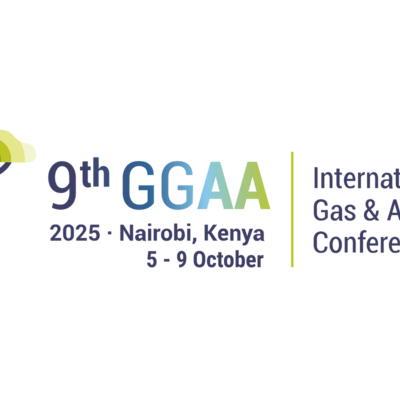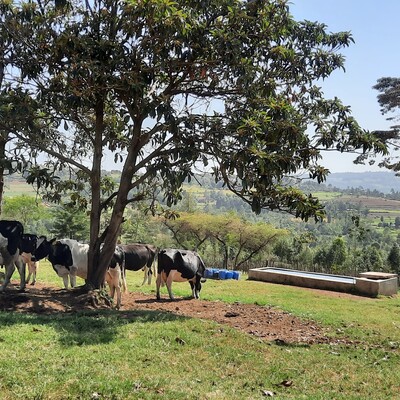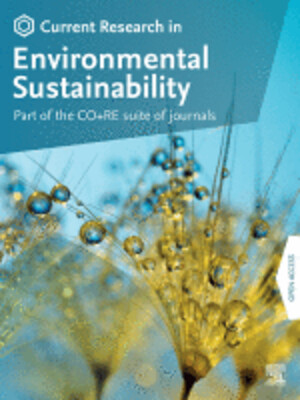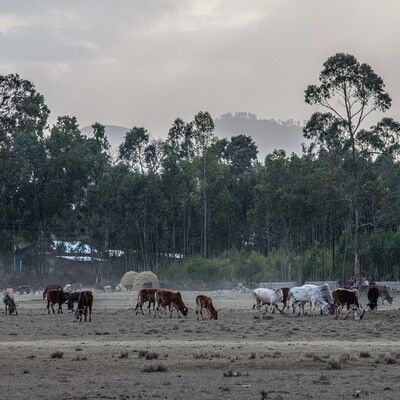
Pastoralists take the stage showcasing there’s more than one way to share a message
Lessons from Africa Climate Summit: We need to listen more to pastoralists and farmers
At times, at high-level international events like the Africa Climate Summit held in early September 2023, organizers don't have the opportunity to or sometimes forget to include the voices of the people who are going through the very issues that are discussed.
On 8 September 2023, the International Livestock Research Institute (ILRI), the Jameel Observatory for Food Security Early Action and partners tried something a little different at the 'Climate Activation Tent' at the Kenyatta International Convention Centre in Nairobi, Kenya. The side-event, dubbed 'Response, recovery, resilience: Dryland communities managing climate and environmental shocks', consisted of a play - of the drama kind.
The tent's open space without walls was conceived to challenge organizers to think outside of the boundaries that they normally find ourselves in. Within the allotted 30 minutes, a team of scientists, activists and pastoralists acted out a narrative showing how pastoral communities in Kenya adapt to and manage shocks like drought. The actors were shy at first, but as the play ensued, their confidence rose as they delivered poignant messages.
A story of resilience, innovation and community
The play opened with Cynthia Mugo, ILRI policy and engagement stakeholder advisor, setting the scene and describing a passenger alighting from a bus in Kenya’s upper eastern region of Isiolo.
The 'passenger' is Tahira Mohamed, a postdoctoral fellow at the ILRI-hosted Jameel Observatory for Food Security Early Action, who is visiting her home.
Tahira meets her friend Shoba Liban, a pastoralist who explains how her community had been affected by the recent drought. To save their cattle from dying, she talked about how her community is responding by moving or selling cattle, recovering by sharing livestock when others lose theirs and being resilient by investing in the capacities of local first responders.

Pastoralists have been adapting to and coping with the effects of climate change for years. Their indigenous knowledge has been passed down for generations, bringing communities together to help each other when times are hard.
Guyo Roba, head of the Jameel Observatory, and a pastoralist himself, took to the stage with a message of caution that while the pastoralists who ‘have more’ have traditionally helped those who 'have less’, today's droughts have reduced the numbers of people who 'have more'.
This is why anticipatory action is at the heart of the Jameel Observatory.
Giving the stage to pastoralists helped to paint a clearer picture of how their communities are adapting to climate change and the mounting challenges they face that are slowly eroding their ability to do so without the support of governments and other national and international actors.
The Climate Activation Tent provided an opportunity to do things differently and demonstrated that, by including the voices of people most affected by climate change, we can open up genuine and informed conversations to identify solutions that are tailored to their needs.




















